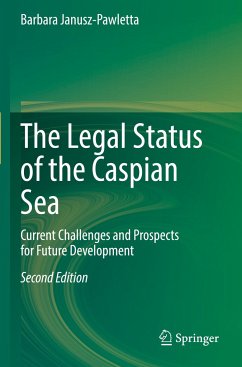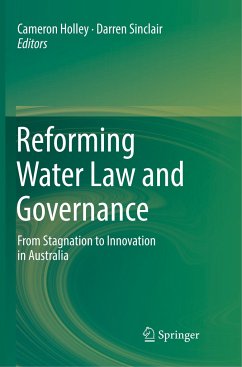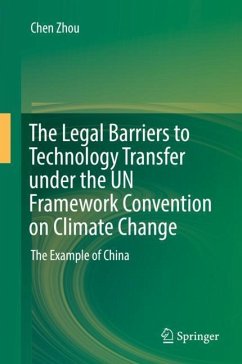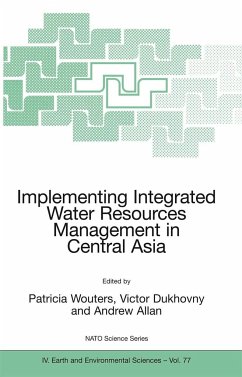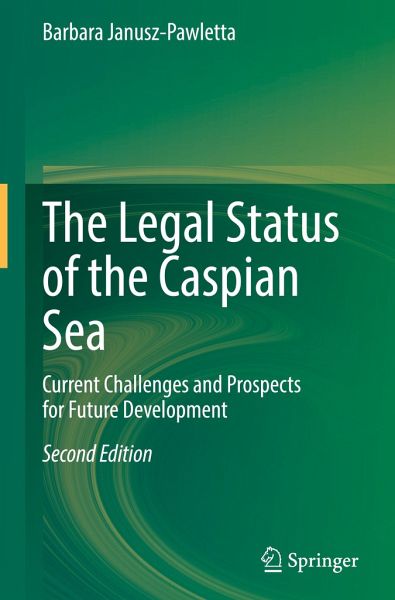
The Legal Status of the Caspian Sea
Current Challenges and Prospects for Future Development
Versandkostenfrei!
Versandfertig in 6-10 Tagen
98,99 €
inkl. MwSt.
Weitere Ausgaben:

PAYBACK Punkte
49 °P sammeln!
This book analyzes the legal and economic situation concerning the removal and allocation of natural resources in the Caspian Sea - the largest enclosed body of salt water in the world, which not only constitutes a fragile ecosystem with tremendous fishery resources, but is also rich in oil and gas deposits. After more than 20 years of negotiations, the five littoral states signed the Convention on the Legal Status of the Caspian Sea in August 2018.This book investigates whether this long-awaited agreement may pave a way forward for the sustainable and peaceful development of the Caspian regio...
This book analyzes the legal and economic situation concerning the removal and allocation of natural resources in the Caspian Sea - the largest enclosed body of salt water in the world, which not only constitutes a fragile ecosystem with tremendous fishery resources, but is also rich in oil and gas deposits. After more than 20 years of negotiations, the five littoral states signed the Convention on the Legal Status of the Caspian Sea in August 2018.
This book investigates whether this long-awaited agreement may pave a way forward for the sustainable and peaceful development of the Caspian region. The newly introduced regulations on the delimitation of the boundaries, on the Caspian Sea's natural resources (especially its fossil fuels) and on the transport of goods by shipping and submarine pipelines, are of utmost importance for the successful participation of the Caspian states in global markets. In addition to a detailed analysis of the Convention, the book offersan up-to-date and comprehensive overview of the historical background and current status of issues that are of critical importance for the region's development and security.
This book investigates whether this long-awaited agreement may pave a way forward for the sustainable and peaceful development of the Caspian region. The newly introduced regulations on the delimitation of the boundaries, on the Caspian Sea's natural resources (especially its fossil fuels) and on the transport of goods by shipping and submarine pipelines, are of utmost importance for the successful participation of the Caspian states in global markets. In addition to a detailed analysis of the Convention, the book offersan up-to-date and comprehensive overview of the historical background and current status of issues that are of critical importance for the region's development and security.



